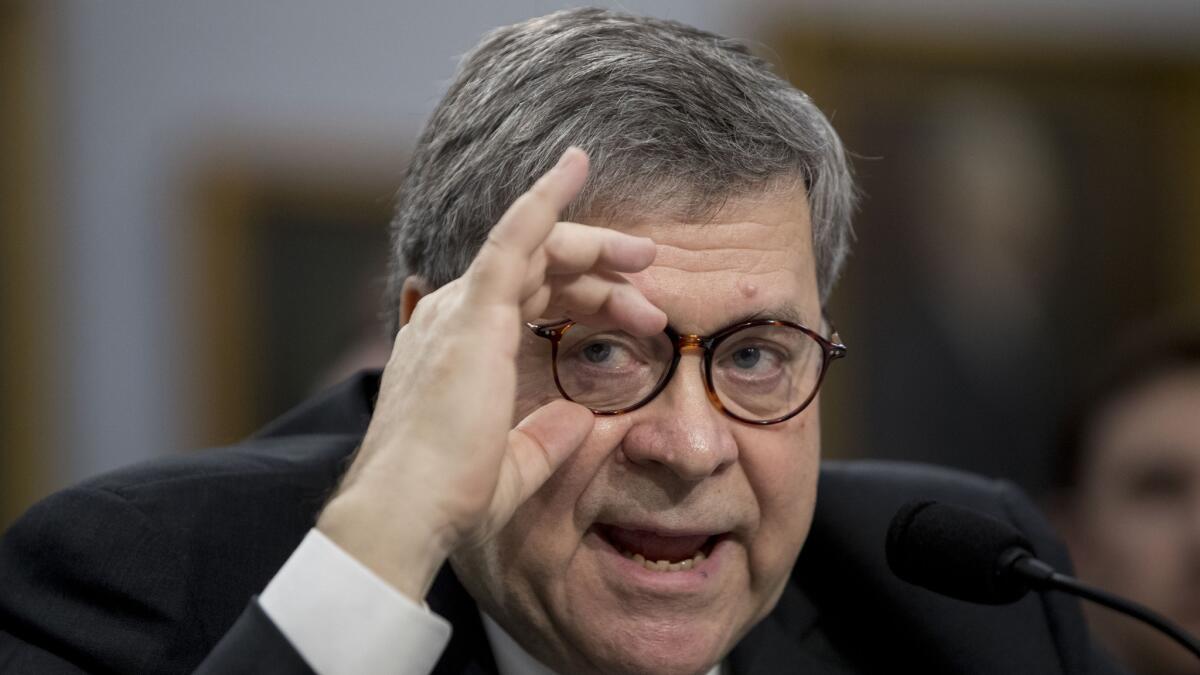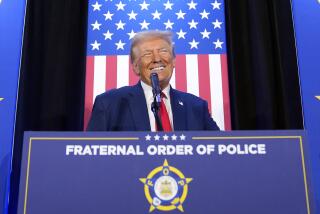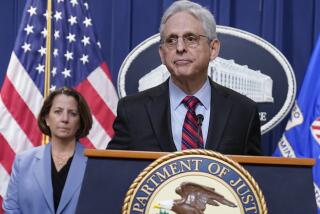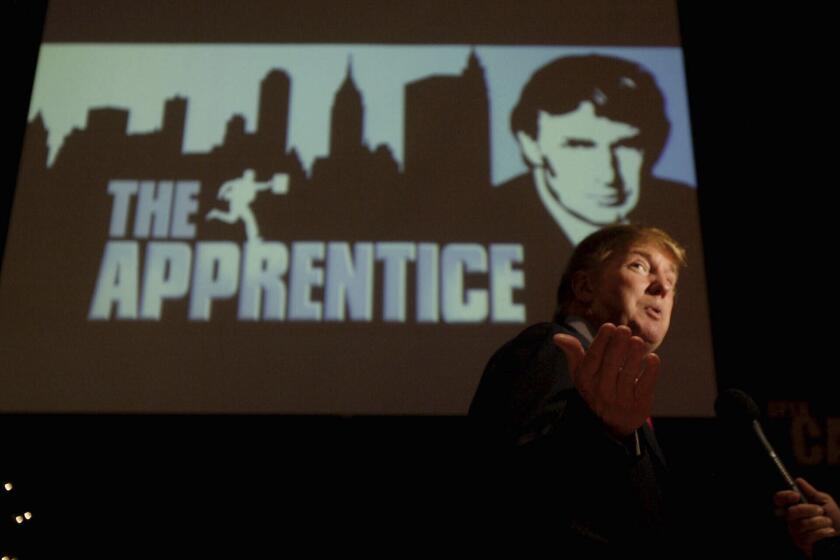Opinion: Trump’s law enforcement commission broke the law

Why don’t people respect the law?
That was among the questions President Trump’s policing commission, launched in January, was tasked with answering. This administration being what it is, and these times being what they are, it seems perfectly fitting that the commission itself broke the law — broke it so completely, in fact, that the day before the election a federal judge blocked it from ever releasing its report unless it included glaring language near the top advising readers that the contents were a product of a panel that was unlawfully constituted and operated.
Or, in the alternative, it can start over, this time with more representative membership and more open proceedings.
The takeaway is that any discussion in the as-yet unreleased report of the Presidential Commission on Law Enforcement and the Administration of Justice about why people don’t respect the law is likely to be fairly useless, because it was written for self-serving purposes by police and prosecutors operating behind closed doors without input from people with different experiences and backgrounds, in violation of the Federal Advisory Committee Act.
That’s a shame, because the panel had other questions it was supposedly seeking to answer, and some of them were quite worthy. Such as, “How do mental illness, substance abuse, and homelessness affect the ability of law enforcement to police?” That’s a particularly timely question, given that so many cities have responded to a summer of protests by trying to pull their police back from dealing with mental illness, substance abuse and homelessness.
A responsibly constituted commission might have had much to offer on that question.
But this was not a responsibly constituted commission. As with so much of Trump’s presidential work product, it was an obvious attempt to subvert something from Barack Obama’s administration, in this case his Task Force on 21st Century Policing. Some law enforcement officials were upset with the Obama report because it had the temerity to suggest that police ought to do some of their work differently, in the interest of justice and public safety.
Trump created his commission to reiterate his position that police are doing everything right but are being undermined by troublemakers.
To ensure a report that made findings in accord with that outlook, Atty. Gen. William Barr stocked the panel with police chiefs, sheriffs, folks from the FBI, the Drug Enforcement Administration, and the U.S. Marshals Service. There are also civilians — criminal prosecutors, for example, and directors of public safety offices. To be fair, there is one city councilman. No, wait, he’s also a cop. No civil rights leaders, community advocates, defense lawyers.
Presidential commissions are run by and for the benefit of the United States, so they are subject to law, in this case the Federal Advisory Committee Act, which lays out rules to ensure balanced membership and viewpoints and public access to proceedings.
When Trump announced he was creating the commission, though, he said that recommendations would come quickly “because most of them” — the members — “know many of the answers before they begin.” In other words, no need for hearings, fact-finding, evidence, analysis, discussion, debate. This was to be a vehicle for doing what the selected members already wanted done.
Sure, there are laws that govern these kinds of things. But those kinds of laws are for suckers, right?
Which should lead us to once again ask the commission’s central question:
Why don’t people respect the law?
More to Read
A cure for the common opinion
Get thought-provoking perspectives with our weekly newsletter.
You may occasionally receive promotional content from the Los Angeles Times.











